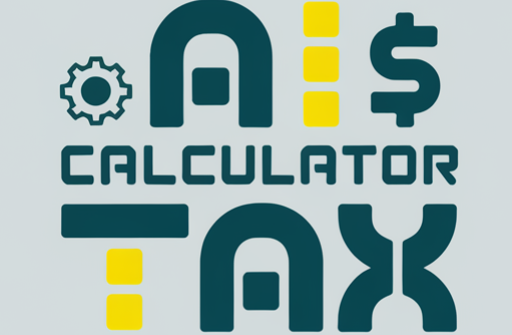Introduction
As AI-powered tax tools become more common, concerns about security and privacy are growing. Users entrust these platforms with sensitive financial data, making robust security measures essential. This article explores how AI tax software protects user information, prevents fraud, and ensures compliance with global data privacy laws like GDPR.
How AI Tax Software Protects Your Data
AI-driven tax tools incorporate multiple layers of security to safeguard user data. End-to-end encryption, multi-factor authentication (MFA), and real-time fraud monitoring are just a few measures that protect against cyber threats. Unlike traditional software, AI tax tools continuously learn from security threats, improving protection over time.
Encryption Standards in AI Tax Applications
Encryption is the backbone of data security in AI tax software. Industry-standard AES-256 encryption ensures that sensitive tax data remains secure during transmission and storage. Many AI-powered tax tools also adopt zero-knowledge encryption, ensuring that even the software provider cannot access user data.
AI Tax Software and GDPR Compliance
AI tax platforms that operate in the European Union must comply with GDPR (General Data Protection Regulation). This means they must:
- Provide users with control over their data.
- Implement data anonymization techniques.
- Ensure transparency in how AI models process tax data.
Non-compliance can lead to hefty fines, making GDPR adherence a top priority for AI tax software developers.
Preventing Identity Theft in AI Tax Tools
AI-powered tax platforms are prime targets for identity theft. To prevent this, these tools use:
- Behavioral biometrics to detect suspicious login patterns.
- AI-driven anomaly detection to flag unusual tax filings.
- Automatic alerts for unauthorized account access attempts.
AI vs. Human Accountants: Who is More Secure?
While human accountants follow strict security protocols, they are still vulnerable to social engineering attacks and human error. AI tax tools, on the other hand:
- Use machine learning to detect and prevent fraud.
- Encrypt all communications and data exchanges.
- Operate within a strict security framework that eliminates human-induced risks.
However, AI systems are not foolproof—they are vulnerable to adversarial attacks and data breaches if not properly secured.
How AI Detects Fraudulent Tax Filings
AI tax software is designed to identify and prevent fraud by:
- Analyzing large datasets to detect suspicious patterns.
- Using predictive analytics to flag anomalies in tax returns.
- Cross-referencing historical tax data to detect inconsistencies.
Tax authorities like the IRS are increasingly using AI-driven fraud detection to catch fraudulent claims before refunds are processed.
Best Practices for Keeping Your AI Tax Data Safe
Users can take additional steps to enhance their AI tax tool security:
- Enable multi-factor authentication (MFA) for login protection.
- Regularly update passwords and use password managers.
- Avoid accessing tax software from public Wi-Fi networks.
- Review privacy policies to understand how data is stored and shared.
The Role of Blockchain in AI Tax Security
Blockchain technology offers a decentralized and tamper-proof way to store tax records securely. AI tax software can integrate blockchain to:
- Ensure data integrity through cryptographic hashing.
- Create transparent audit trails for tax authorities.
- Prevent unauthorized modifications to tax records.
AI-Powered Fraud Detection in Tax Returns
AI fraud detection systems analyze tax return data in real time to:
- Identify irregular income declarations.
- Detect fabricated deductions and inflated expenses.
- Cross-check financial data with external databases to verify accuracy.
Machine learning models are trained on thousands of fraudulent tax filings, allowing AI to proactively prevent fraud before it occurs.
AI Tax Tools and Third-Party Data Sharing Risks
Some AI tax tools share user data with third-party partners for analytics or marketing. This raises concerns about:
- Data monetization without user consent.
- Increased exposure to data breaches.
- Legal implications under GDPR and CCPA regulations.
To protect privacy, users should:
- Opt out of unnecessary data sharing.
- Read the software’s privacy policy carefully.
- Use platforms with strict third-party data security agreements.
FAQs
How secure is AI tax software compared to traditional tax software?
AI tax software often includes advanced encryption, real-time fraud detection, and biometric authentication, making it more secure than many traditional tax solutions.
Can AI tax software be hacked?
While no system is 100% immune to hacking, AI tax platforms implement multi-layered security to minimize risks. Users should also follow cybersecurity best practices to protect their accounts.
Does AI tax software store my financial data permanently?
Most platforms allow users to delete or anonymize their data. Check the privacy policy of your chosen AI tax tool.
Is AI tax software compliant with global data privacy laws?
Reputable AI tax tools comply with GDPR, CCPA, and other privacy regulations to protect user data.
How does AI detect tax fraud?
AI systems analyze patterns in tax returns, flag inconsistencies, and use machine learning models trained on fraudulent cases to detect potential fraud.
Can AI tax tools replace human accountants?
AI tax tools automate complex calculations but lack human judgment and tax strategy expertise. Many businesses use both AI and human professionals for maximum accuracy and compliance.
What should I do if my AI tax tool is breached?
Immediately change your passwords, enable two-factor authentication, and monitor your financial accounts for suspicious activity.
Contextual Conclusion
AI-powered tax tools offer unmatched security, fraud detection, and compliance features. However, users should remain proactive by understanding privacy policies, enabling security settings, and staying informed about potential risks. As AI continues to evolve, ensuring secure and ethical data handling will be key to building trust in AI-driven tax solutions.
